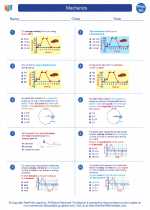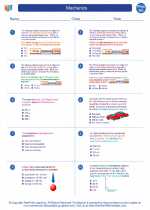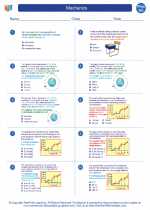Ecosystem
An ecosystem is a community of living organisms (plants, animals, and microorganisms) in conjunction with the nonliving components of their environment (such as air, water, and mineral soil), interacting as a system. These biotic and abiotic components are linked together through nutrient cycles and energy flows.
Key Concepts
- Components: Ecosystems consist of biotic (living) and abiotic (non-living) components.
- Interactions: Organisms within an ecosystem interact with each other and with the environment.
- Energy flow: Energy flows through ecosystems in the form of food chains and food webs.
- Nutrient cycles: Nutrients are recycled within ecosystems through processes like the carbon cycle, nitrogen cycle, and water cycle.
- Succession: Ecosystems can undergo changes over time through processes like primary and secondary succession.
Study Guide
- Define the term "ecosystem" and list its key components.
- Explain the interactions between biotic and abiotic components in an ecosystem.
- Describe the flow of energy through an ecosystem, including the roles of producers, consumers, and decomposers.
- Discuss the importance of nutrient cycles in maintaining ecosystem health.
- Compare and contrast primary and secondary succession in an ecosystem.
- Choose a specific ecosystem (e.g., a tropical rainforest, a coral reef, a grassland) and analyze its unique characteristics and dynamics.
- Identify and explain human impacts on ecosystems, including pollution, habitat destruction, and climate change.
By understanding the concepts and dynamics of ecosystems, we can better appreciate the interconnectedness of all living organisms and the environment, and work towards promoting sustainability and conservation.
[Ecosystem] Related Worksheets and Study Guides:
.◂Physics Worksheets and Study Guides High School. Mechanics
The resources above cover the following skills:
Core Ideas for Knowing Science
Physical Science
Changing the movement of an object requires a net force to be acting on it.



